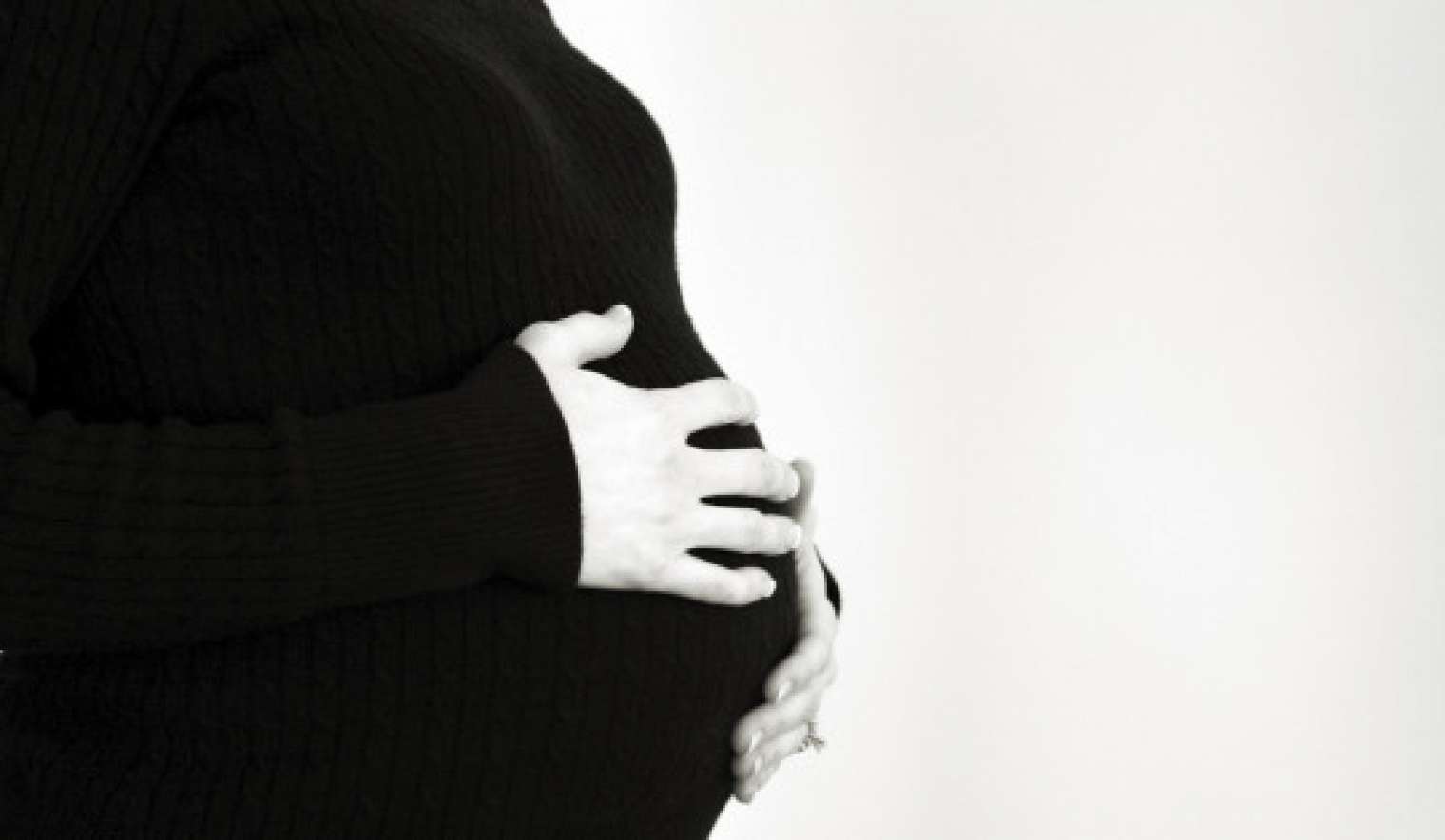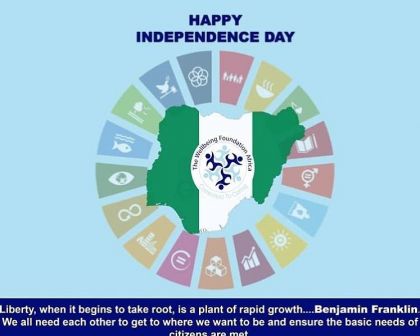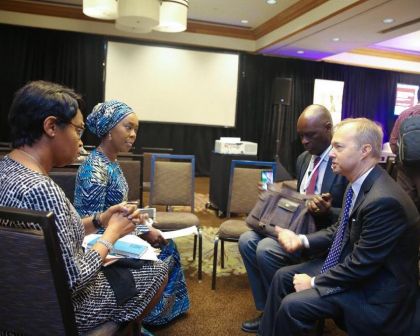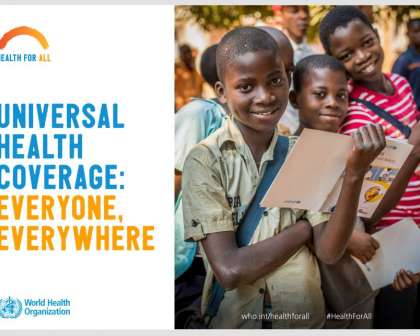
The Majority of Stillbirths Occur in Africa But How Does A Mother Deal With The Loss?
Below is the speech I delivered at the launch of the Lancet Series on Ending Preventable Stillbirths. At the launch, I spoke of my own experience of stillbirth in Nigeria and the work that we can do to accelerate progress so that it is not more than 160 years before a pregnant woman in Africa has the same chance of her baby being born alive as a woman in a high-income country today. To listen to my experience of stillbirth, click here for my interview with Akwasi Sarpong from BBC Focus on Africa.
I would like to thank The Lancet Series for their invitation of the Wellbeing Foundation Africa and I to co-author the third report in this series, Stillbirths: economic and psychosocial consequences, alongside other notable experts in this field. The Lancet Series on Ending Preventable Stillbirths is a seminal programme that shines a spotlight on what is often termed the ‘invisible death,’ and we are proud to be part of this.
The report explores the direct and indirect costs of stillbirths, as well as the psychological and social effects - a neglected area of health accountability metrics and statistics. Data on the cost of stillbirths in high-burden countries - including my home nation of Nigeria, which ranks second highest in the world for stillbirths - is inadequate, indicative of the cultural taboos associated with the loss of a child in a stillbirth. Studies outlined in the report describe the disenfranchised grief felt by parents in low- and middle-income countries, where their grief were not legitimised or accepted by health professionals, family, or society. Their accounts were supported by survey responses from care providers in low- and middle-income countries where 4% attributed stillbirth to a mother’s fault, 12% agreed that parents should not talk about their stillborn baby, and only 19% agreed that a death before birth is the same as a death of a child.
Nigeria suffers a rate of almost 43 stillbirths per 1000 births, whereas Iceland has a rate of only 1.3 per 1000 births. How can Nigeria simultaneously reduce its stillbirth rate and ensure that the 43 mothers per 1000 births are supported? The negative experiences of some women in sub-Saharan Africa when seeking maternity care, especially around the time of labour can negatively impact health-seeking behaviour, resulting in women avoiding skilled birth attendants at future deliveries, resulting in increased further risk of stillbirth. At the White Ribbon Alliance Nigeria, we have campaigned for Respectful Maternity Care to ensure women feel safe, heard, and respected during pregnancy, during labour, and during any negative health outcomes, including stillbirths.
The experience of grieving mothers from stillbirths in low- and middle-income countries is painfully fresh for me. Less than a month ago, I visited the Kwara State Civil Service Clinic in Nigeria. During my visit, I noticed a young mother who had recently experienced a stillbirth, sitting silently on her bed in a ward surrounded by new mothers with their newborns. In her silence, I saw my own grief reflected back to me. I too lost one of my twin daughters during childbirth in Nigeria, over twenty years ago. Her silent endurance, her lack of support, and her neglected psychological state was in direct contrast to the traditional Yoruba concept of motherhood, called Alaafia Abiyamo - a belief that motherhood transcends the physical process and is a transformative pre-gestational, social, prenatal, postnatal, spiritual, and community role. Alaafia Abiyamo starts from the heart - it begins before birth, and continues throughout the lifetime of both mother and child, in joy and in sadness.
It is the concept of Alaafia Abiyamo that has driven the Wellbeing Foundation Africa and I to embark on advocacy and programming that can ensure the survival of every mother and every child, at every stage of pregnancy, and at every stage of life. Although I have witnessed firsthand the grief of a preventable stillbirth, I have also seen how high-income countries prevent stillbirths. Only this week, my dear friend in London was confined to bed rest at 24 weeks of pregnancy to prevent early labour and a potential stillbirth of her long-awaited child. This decision taken by the NHS was taken with the knowledge that every hour, every day, and every week is the difference between life and stillbirth, and that every measure must be taken to prevent this outcome.
Through our groundbreaking Maternal Monday social media campaign, we advocate to share the stories of African mothers and educate mothers about potential risks to survival. Our Alaafia Universal Health Coverage Fund (AUHCF), which funds the insurance premiums of 5,000 Nigerians annually, allows pregnant women to access antenatal care, thus preventing pregnancy risks escalating into tragedy and stillbirth. Our WBFA Personal Health Record - a vital accountability tool - allows pregnant women to track every stage of their pregnancy, enabling mothers to make informed decisions about their health while enabling health professionals to provide timely, effective care such as ensuring bed rest. As the International Confederation of Midwives Global Goodwill Ambassador, I am working to scale up access to skilled midwives who can not only provide care that prevents stillbirths but also provide the psychological support and comfort for grieving families in the aftermath of a stillbirth. Moreover, as 1.2 million women experience the loss of their baby during labour after a full nine months of pregnancy, we have partnered with Johnson & Johnson and the Liverpool School of Tropical Medicine to deliver emergency obstetrics and newborn care (EmONC) training to healthcare professionals in Kwara State that could reduce maternal mortality by up to 20% and help prevent stillbirths during labour.
Drawing on Alaafia Abiyamo, we support parents and families across the African continent in their care before, during, and after pregnancy. Drawing on Alaafia Abiyamo, we give mothers the medical care and resources needed to prevent stillbirths. Because of Alaafia Abiyamo, we give parents the support, space, and voice to grieve and recover. Further, we provide a full scope of transformative support on Reproductive, Maternal, Newborn, Child and Adolescent Health and, indeed, health in its entirety as we embark on SDG 3, for wellbeing for all, at all ages.
Most importantly, Alaafia Abiyamo can provide dignity, strength, support and hope to mothers who lose a child through stillbirth. It gives them the knowledge that they remain a mother; that their grief is respected; and that the memory of their stillborn child can be cherished. Much like the Lancet Series on Ending Preventable Stillbirths, Abiyamo can take stillbirth out of the shadows, removing the cultural stigmas that have made it an invisible death and an invisible grief. Through our work, we can ensure that mothers can experience Alaafia Abiyamo and positive health outcomes, from birth to age.
Follow Toyin Ojora-Saraki on Twitter: www.twitter.com/ToyinSaraki
Share this Article

Toyin Ojora Saraki
Toyin Saraki is Founder-President of the Wellbeing Foundation Africa (WBF Africa), a pan-African maternal health and wellbeing charity. WBF Africa has become one of the most influential and active organisations in the area of maternal, newborn and child health (MNCH), working across sectors to deliver innovative solutions such as its flagship WBFA IMNCH Personal Health Record© and the MamaKit. WBF Africa goes beyond aid; it is dedicated to advocacy and the formation of best practices in health, education, women’s empowerment and social welfare. A qualified barrister, Toyin Saraki built a successful private sector career before dedicating the last 21 years to philanthropy.
Read More



